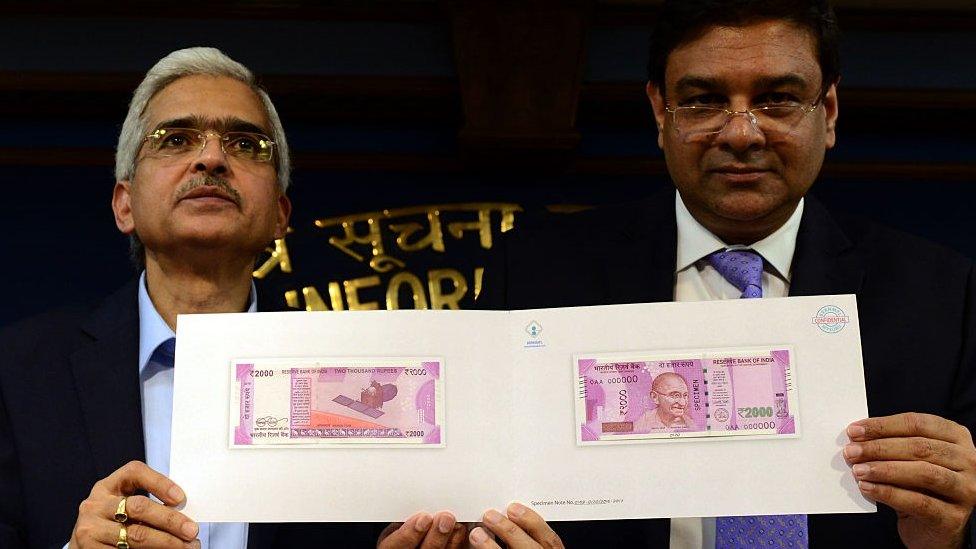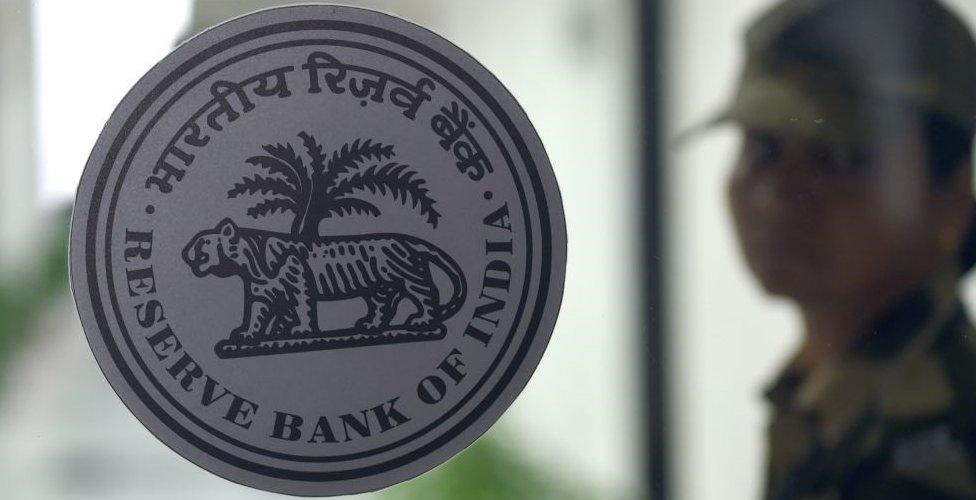India appoints new central bank governor
- Published

Mr Das (left) and former Reserve Bank governor Urjit Patel
Shaktikanta Das has been named as the next governor of the Reserve Bank of India.
Mr Das, who has previously worked on the board of the central bank and as finance secretary, will serve a three-year term.
He was closely associated with the withdrawal of high-value bank notes in 2016, which caused a cash shortage.
His appointment follows the abrupt departure of governor Urjit Patel on Monday.
Mr Patel blamed "personal reasons" for his resignation, but it's thought he had come under increasing pressure from the government to support its polices.
It was a rare instance of a governor leaving his job midway through his term.
The government reportedly wanted the RBI to allow ailing state-owned banks, groaning under bad loans to industries, to resume lending to small businesses. It also wants the regulator to lower interest rates to inject much-needed liquidity into the economy.
Reports say the government also wants to access the RBI's surplus reserves in a bid to stimulate the economy with a big public spending spree to woo voters before the elections.

Analysis by Devina Gupta, BBC Delhi business correspondent

From serving in the Tamil Nadu government to the power corridors of Delhi, Shaktikanta Das has held many posts including revenue secretary and fertiliser secretary.
But the experience that has counted the most in his portfolio is on the finance ministry's first floor as the economic affairs secretary.
Here, Das has worked closely with the central bank of India from 2015 to 2017. He understands the constant tussle between the RBI and the government.
No doubt his swift appointment will raise questions about the autonomy of the central bank.
Mr Das's priority will now be to restore the central bank's credibility.
One of the moves that will be watched by investors will be to see if he allows the government to have a higher share of the central bank's cash reserve.

India will vote in a general election in the first half of next year, with polls due by May.
India's $2.6 trillion (€2.3tn; £2tn) economy has recently been boosted by a strong performance in consumer spending and manufacturing, although the rupee has already fallen significantly against the surging dollar so far this year.
However, private investment remains slack and there are doubts on whether the economy will accelerate further.
Mr Das has much experience working on budgets, both for the government of Prime Minister Narendra Modi and the previous coalition government.
He retired as economic affairs secretary in May last year.